We are happy to announce the release of the Chinese version of the second issue of the Swiss-Chinese Law Review (ISSN 2673-5407).
In this issue, we continue to include articles from legal experts from several countries worldwide, presenting the growth of the world’s rule of law capacity.
The Liechtenstein blockchain legislation (TVTG) is undoubtedly the highlight in legal technology development. Fabian Tichmann and Marie-Christine Falke, two lawyers from Switzerland, systematically present the TVTG and boldly predict that “any multinational company intending to get involved in blockchain technology will see Liechtenstein as the most attractive location for their company. By regulating participants and service providers, the TVTG deals with the previously legal gray areas and uncertainties of blockchain technology and provides a sound legal framework for its development.
The Novo-Capo Mediation Convention entered into force on September 12, 2020. This international convention, drafted under the leadership of the United Nations Commission on International Trade Law, which addresses cross-border enforcement of settlement agreements reached through international commercial mediation, is expected to become a foundational convention for free trade globally. Although somewhat untimely in the face of the new crown epidemic, its impact will be felt in the future. This issue features an article by Federico Antich, a FIMC-registered commercial mediator, on “The Singapore Convention on Mediation and the New Development of the Commercial Mediation System – An Italian Perspective.” It explained how the convention has “landed” in China-Italy and how it has been harmonized with EU and Italian domestic law in detail.
Are you being discriminated against by artificial intelligence? This is a fascinating topic. With the new crown epidemic, AI and personal privacy have unexpectedly become a hot topic. This issue of the magazine includes two discussions on AI. Artificial intelligence and discrimination, the digital age and women, behind this topic are a manifestation of the deepening development of human rights globally, and the detailed discussion of particular groups, nascent things, harboring important trends in the future development of law.
Other articles on vaccines, compliance, new regulations, remote arbitration, cross-border bankruptcy, and other topics also showcase new developments in the rule of law in various jurisdictions around the world. And, of course, the birth of China’s civil code, the third in the last hundred years. Interestingly the first civil code was born only two months after the fall of the Chinese empire. So, the fate of this socialist civil code will also be an important chapter in the history of the Chinese legal system.
We are also grateful for the support of Pfluger and Kunze (KUNZ) from Cologne, Germany, KUBAS KOS GALKOWS from Poland, and several law firms from CTL, Italy. Thank them, and thank you for accompanying us and allowing us to grow together with the rule of law in the world.
Editor-in-chief of the Chinese edition of the Swiss-Chinese Law Review: Jian Guo.



